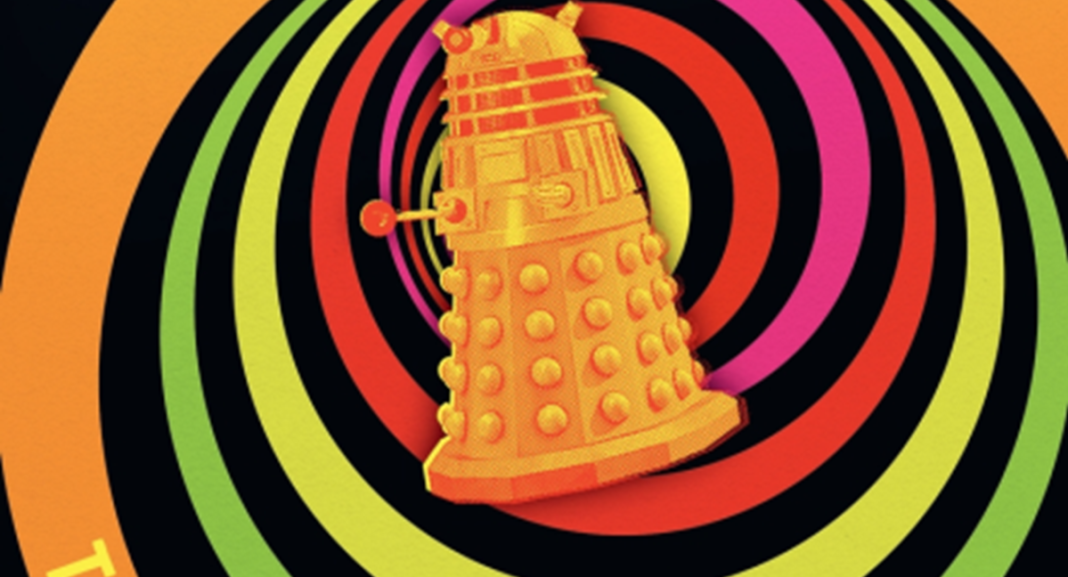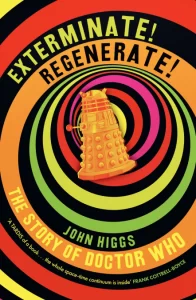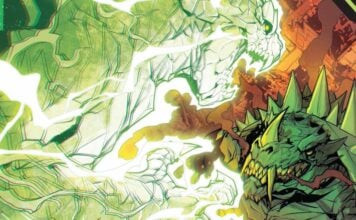 Exterminate/Regenerate – The Story of Doctor Who
Exterminate/Regenerate – The Story of Doctor Who
Author: John Higgs
Publisher: Orion
Publication Date: April 2025
For many people unfamiliar with the work of John Higgs, it might be easy to go into Exterminate/Regenerate with the wrong impression of what it is. It is not an episode by episode look at the totality of Doctor Who like, to name the obvious, Lawrence Miles and Tat Wood’s About Time series. For starters, it rarely engages with stories of the show directly. For example, The Mind Robber isn’t discussed within the book until the final chapter, and its discussion neither names the episode nor engages with the details of the episode beyond its general premise. Equally, stories like Kerblam!, The Doctor’s Wife, or Spearhead From Space are never once mentioned.
At the same time, however, it isn’t an exploration of the production history of Doctor Who like Elizabeth Sandifer’s A Mild Curiosity in a Junkyard. While several elements of the production are explored quite extensively, from the conception of the show to small background gags that the camera didn’t pick up to an entire section dedicated to exploring a single story that was almost produced. But there are no deep dives into the productions of, say, The Horns of Nimon or anything to do with Chameleon.
Instead, what the book is interested in is to explore Doctor Who like a city, finding its nooks and crannies alongside the landmarks and trying to understand it from a different angle. A psychochronographic approach, to use terminology familiar to Whovians. This is a rather expected approach from John Higgs. Higgs is quite possibly one of the most interesting critics working in the field today, often exploring works from William Blake to the KLF. His approach to large subject matters has frequently yielded works that I simply cannot stop reading.
While there are several moments that a traditional Whovian might not be familiar with — most notably Patrick Troughton’s extramarital relations and Jon Pertwee’s military career — a lot of the elements non-Whovians or even newer fans would be intrigued by are familiar to those who have dived the depths of the classic series. There’s talk of the infamous Prison in Space, which is quite possibly the most uncomfortable part of a book that also talks about Gary Downe at length.
It’s when Higgs engages with the material from outside of the old standbys that Exterminate/Regenerate truly shines. An early section of the book involving comparing Hartnell’s Doctor Who to the unnamed Grandfather in Dickens’ The Old Curiosity Shop that culminates in a quite fascinating coincidence. Even engagements with familiar standbys yield dividends to Higgs’ work. The inevitable part about Michael Grade provides the old Tory with an air of empathy rarely provided within Doctor Who circles who often frame the man as the most evil monster to have ever existed. And the defense of the Chibnall era does well for itself, even as it never once engages directly with the execution of the stories within.
There are some issues with the book to be found. A minor one being the decision to focus exclusively on the television aspect of the show. Certainly this is a minor quibble, and yet one that has been rarely discussed in books such as this. Simply put, Doctor Who spent an extremely long time off the air, roughly sixteen years with only one television movie six years in. To provide context, the other notable long running science fiction television franchise to come out of the sixties, Star Trek, has never had a gap longer than four years without any Star Trek work on either television or film. Doctor Who’s longest gap being the eight years between the aforementioned TV movie and its return in 2005. To have such a period of the series not engaged with beyond generalities is a gap. It’s not as glaring a gap as doing a book comparing and contrasting the impact of James Bond and the Beatles and never once talking about The Prisoner, but it’s a gap nonetheless.
Another issue with the book is the framing of Claudia Boylen. It is certainly fair for Exterminate/Regenerate to discuss modern fandom within its context. Indeed, the book previously discusses the infamous Jan Vincent-Rudzki review of The Deadly Assassin as well as spending ample amount of time with the unavoidable Ian Levine. But the framing of Boylen’s distaste for the Moffat era in the context of her neurodivergence (which neither of her male counterparts receive) springs to mind images of hysterical women who can’t hack it in male contexts, especially with the book’s emphasis on Doctor Who being a historically male fandom.
Equally, there’s a lack of engagement of why she, out of all the various notable fans within the modern Doctor Who landscape who didn’t like the Moffat era — from Mr. TARDIS to Diamanda Hagan to John Barrowman — was singled out as notable. The reason for this involves an engagement with Doctor Who Magazine and the show its covering that Higgs never seems interested in dealing with. Fandom, in all its petty beauty, is never once explored beyond the surface generalities.
This leads into perhaps the biggest issue I have with the book, this being a thread that it drops rather quickly. Mainly, that Doctor Who can be seen as a proto-religion with fans acting as kin to religious devotees. This strikes a major contrast to the more interesting case Higgs was making prior to this being brought up of Doctor Who being a more mystical text, even namechecking Alan Moore and William Blake in the process. But when non-theologians make a case for a work of science fiction being a religion, they often end up just making Christianity again. (Tellingly, Higgs compares the split between Classic and New Who to that of the Old and New Testament.) To further highlight the sheer boredom of this approach, Higgs almost immediately drops it, never to fully resolve the implications therein.
And yet, I nevertheless found the book to be quite engrossing and fascinating. A truly delightful look at a sixty some odd year old show about a daft old man who stole a magic box and flew away. Perhaps the single best part of it is how Higgs approaches Jonathan Nathan-Turner. He does not shy away from the rather disquieting aspects of the man (a harrowing section of the chapter on the Sixth Doctor is focused on Peri and her actress Nicola Bryant’s treatment on the show). But it does paint a man who is more than his worst instincts and impulses. One who tried to make it in the industry and was confronted with failure after failure, but still liked by those who were close to him. The final word on him, as a psychogeographic look at Doctor Who through the 12X route is a fitting capstone to the book as a whole.
I’d highly recommend reading Exterminate/Regenerate and discovering the magic of Doctor Who.
Exterminate/Regenerate: The Story of Doctor Who is available now
Read more great reviews from The Beat!










